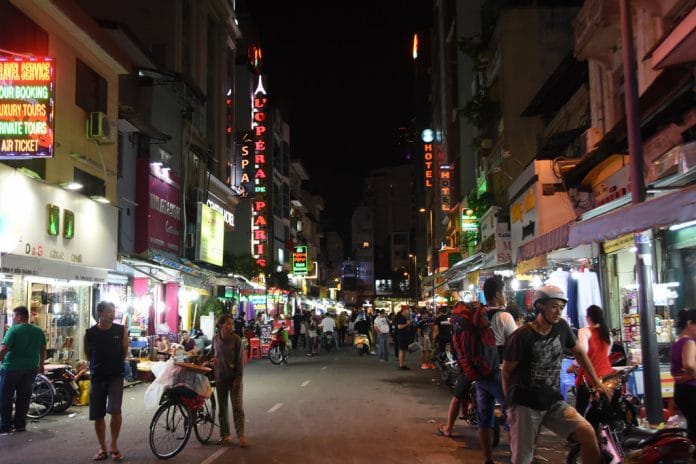Kuala Lumpur/Singapore: The struggle to contain infections linked to a religious gathering has led Malaysia to resort to sweeping restrictions on people’s movement, underscoring the challenge of upholding religious rights in fighting a pandemic.
More than half of the country’s 673 confirmed cases, the most in Southeast Asia, were linked to an event that ran from Feb. 27 to March 1 attended by about 16,000 people at a mosque near Kuala Lumpur. Neighboring countries Singapore and Brunei have also reported cases that could be traced back to the gathering. A 34-year-old Malaysian man who attended the event died on Tuesday, one of only two fatalities in the country.
Amid a global pandemic where social distancing is a key tool in the fight against its spread, the avoidance of large gatherings is challenging attitudes to religious and other freedoms. While Singapore immediately shut all mosques for cleaning, Malaysia was slower. The Muslim majority country had to secure a series of approvals from Islamic leaders and navigate the authority wielded by its 13 states. Health authorities also struggled to track down those who were at the gathering, echoing the challenge faced by South Korean authorities.
Religion and race are closely linked in Malaysia where one must profess to be Muslim to belong to the Malay majority. Both issues play a central role in the nation’s politics, with the latest power struggle pitting former premier Mahathir Mohamad’s multiracial coalition against Malay Muslim-majority parties backing Muhyiddin Yassin, who insisted that he is prime minister to all in his first televised speech. The country maintains a range of preferential policies, including housing and education quotas, for Malays and indigenous people.
Malaysia’s handling of the outbreak has been complicated by the political upheaval in late February. While former leader Mahathir is a veteran with more than two decades spent as prime minister in two stints, Muhyiddin is only weeks into the role with a cabinet composed of many first-time ministers including for the health portfolio.
Representatives for the prime minister’s office and the health ministry weren’t immediately available for comment.
Also read: Coronavirus disparity: No work from home for India’s poor
Border Closures
Political sensitivities surrounding closure of places of worship starts to fade as the outbreak becomes a global concern, said Awang Azman Awang Pawi, an associate professor who studies socio-culture in University of Malaya.
“More important is whether the new government is successful in its measures within these two weeks,” he said. “If it fails, it will be blamed for having a weak strategy to counter the virus.”
When Singapore closed its mosques on Thursday, Malaysia stopped short of canceling mass Friday prayers. Mosques were instead asked to shorten sermons and provide face masks while those with symptoms of the illness were exempt, instead of banned, from attending prayers.
It was only on Sunday, after the number of cases surged by 80%, that the government held a special meeting with Islamic leaders. They agreed to call off all activities at mosques for 10 days, then had to seek the approval of Malaysia’s king before announcing the decision the following day.
The order was effective immediately in the country’s federal territories, which includes the capital Kuala Lumpur and offshore financial hub Labuan, but religious leaders in each of the nation’s 13 states retained the prerogative to decide on the implementation.
Late on Monday, Muhyiddin announced sweeping bans on incoming visitors and Malaysians traveling overseas, as well as widespread closures of shops, schools, some public services and all places of worship — except for mosques and prayer houses known as surau, which must follow the Sunday agreement of Islamic leaders.
On Tuesday evening, hours before the border closures, thousands of its citizens drove across the causeway to neighboring Singapore, where many commute to work each day. Across the country, people rushed to take buses and trains to return to their hometowns after the police said it would require special permits for interstate travel — an order it rescinded hours later.
Also read: Mecca to Vatican — COVID-19 proves when human beings are in peril, gods flee first







Malaysia can do but India cannot. And if these gatherings continue, more Muslims will die of the virus and then the secular brigade, the lefties and the congies, will all blame Modi. No one is saying the shaheen bagh type gatherings is a recipe for disaster.